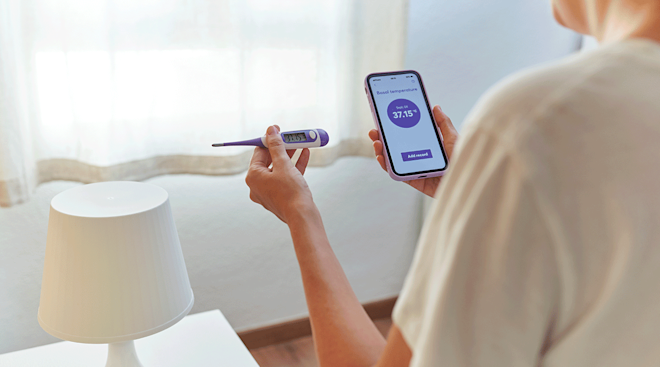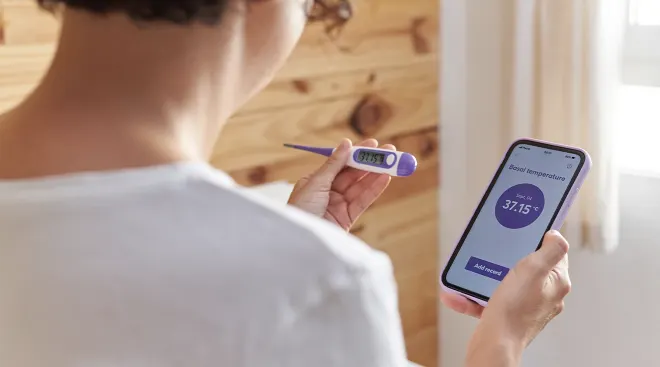Ozempic Babies: Experts Weigh in on the Drug’s Effect on Fertility
Ozempic has taken the weight-loss world by storm, promising relatively quick weight loss and sustainable results. But weight loss isn’t the only thing the drug has become popular for. In parenting and motherhood groups across the internet and on social media, the term “Ozempic babies” has begun to spring up as more and more people have reported getting pregnant while on Ozempic. The drug has not been approved for use to increase fertility, and this side effect has not been studied, so what’s happening? The “Ozempic baby” phenomenon can be traced back to two main factors that increase your likelihood of getting pregnant.
How Weight Loss Can Lead to Increased Fertility
The first reason is correlated with the weight loss patients typically experience when on the drug. “We know that weight loss can increase the rate of ovulation in women with irregular periods,” says Karen Wheeler, MD, FACOG, a reproductive endocrinologist at Reproductive Medicine Associates. “Women who lose weight with Ozempic who were not previously ovulating may start to ovulate and if not using effective contraception, may get pregnant while on Ozempic.” Wheeler also adds that weight loss can not only increase your body’s ability to ovulate spontaneously, but, women with a lower BMI also have increased pregnancy rates from assisted reproductive technology.
Ozempic’s Impact on Birth Control
The second reason that women may be getting pregnant on Ozempic has to do with the drug’s effect on birth control. While there have not been any studies showing that Ozempic specifically decreases the efficacy of oral contraceptives, Wheeler notes that the drug can cause nausea and vomiting, which can lead to decreased absorption and efficacy of birth control pills. Lauren Bishop, MD, ob-gyn, an assistant professor of obstetrics and gynecology at Columbia University Fertility Center, adds that weight loss medications, in general, may decrease the efficacy of oral contraceptive pills. “These medications can slow how the stomach is processing its contents, thus altering how birth control pills are absorbed and processed,” she says.
Why Getting Pregnant on Ozempic Isn’t Recommended
Despite the fertility-boosting benefits of Ozempic, Wheeler and Bishop both caution hopeful parents against using the drug to get pregnant or getting pregnant on Ozempic due to a lack of studies on Ozempic’s use during human pregnancy and adverse outcomes observed in studies among rats. “Pregnant rats who were given Ozempic had increased rates of fetal death, structural abnormalities and growth alterations,” says Wheeler. “It can take up to 6 weeks for Ozempic or similar medications to be gone from the body, so someone who is planning to conceive should stop Ozempic at least 2 months prior to conception.”
Those on Ozempic are recommended to take additional birth control measures under consideration until more is known about how the pill interacts with certain birth controls and the effects of the drug during pregnancy. “Women should avoid pregnancy through barrier method or long-acting reversible contraception such as IUDs,” says Bishop.
After working in the fertility space for years, Wheeler understands how frustrating the path to getting pregnant can be but urges women to continue to look past Ozempic and for other options that may work for them. “If you are overweight or obese and trying to conceive, please speak with your ob-gyn or fertility specialist about the pros and cons of different weight loss therapies,” she says.
If you’ve encountered difficulties on your path to growing your family, know that you aren’t alone. According to the World Health Organization, 1 in 6 people will deal with infertility in their lifetime. You can find support through our trying to get pregnant community forum here and learn more about infertility challenges and treatments here.
Please note: The Bump and the materials and information it contains are not intended to, and do not constitute, medical or other health advice or diagnosis and should not be used as such. You should always consult with a qualified physician or health professional about your specific circumstances.
Navigate forward to interact with the calendar and select a date. Press the question mark key to get the keyboard shortcuts for changing dates.





















































